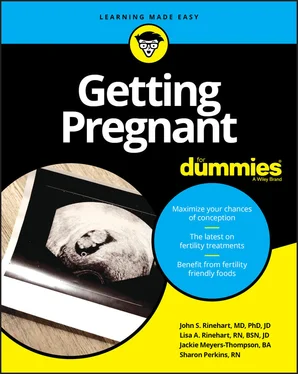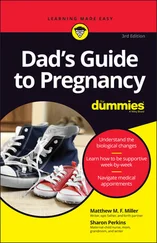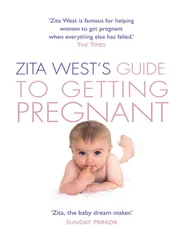NSAIDS (non-steroidal anti-inflammatory drugs), including ibuprofen, may interfere with ovulation and can increase bleeding if taken prior to any procedures (like an egg retrieval). One study suggests that high doses impact sperm production. These should be used with clinic instruction only.
Aspirin can increase bleeding so use with direction only.
Milk of magnesia and antacids are usually fine to settle down that “icky” tummy.
Topical preparations for itches (like Cortaid) or minor skin infections (like Neosporin) can be used as long as you don’t overdo it and ignore what is causing the problem.
 The best thing you can do is answer honestly when your doctor asks you “What medications do you take?”
The best thing you can do is answer honestly when your doctor asks you “What medications do you take?”
Deciding if you need a mammogram
It’s not essential to have a mammogram before getting pregnant, especially if you’re over the age of 40 or if you have a family history of breast cancer. In fact, the American College of Obstetricians and Gynecologists (ACOG) recommends that discussions between physicians and patients of screening mammography to determine when to start them should take place around age 40, but definitely by age 50. Some fertility clinics are making mammograms “required” for all patients who will undergo IVF or are over a certain age, so don’t be surprised if this test gets added to your list of things to do. You might think that having a mammogram “can’t hurt.” That actually is very incorrect. Every medical test has a certain “false positive” rate, meaning that the test says you have a problem when in fact you don’t. So, every test has a trade-off between correctly identifying a disease when it is present and correctly telling you that you don’t have a disease if you don’t. Women who have a mammogram that gives them a false positive (the test says you have breast cancer, but in fact you don’t), will undergo unnecessary further testing, interventions, and psychological trauma. The current recommendations for mammograms take into account the balance of false negatives and false positives.
 During the time of your pregnancy (ten months), along with the time you plan to breastfeed, mammograms will not be a good option. This could be one to two years, depending on how long you choose to nurse. Talk to your OB/GYN about this before you get pregnant, as she may elect to do a baseline mammogram prior to conceiving.
During the time of your pregnancy (ten months), along with the time you plan to breastfeed, mammograms will not be a good option. This could be one to two years, depending on how long you choose to nurse. Talk to your OB/GYN about this before you get pregnant, as she may elect to do a baseline mammogram prior to conceiving.
Seeking other prepregnancy medical counseling: Do you need it?
If you have a chronic disease (diabetes or lupus, for example) or condition (such as heart problems), have had pregnancy or delivery problems in the past, or you are over a certain age, your doctor may want you to have further evaluation by another specialist before you begin treatment. Sometimes this is as simple as going to the doctor that handles your disease/condition to get what we call “medical clearance,” or the go-ahead, to start fertility treatment. Medical clearance lets the clinic know that your condition is under control and that another specialist has looked at you and the proposed treatment so that all risks are identified and managed. Here are two other specialists that you may be asked to see.
Looking for input from maternal-fetal medicine (MFM)
MFM (maternal-fetal medicine) is a subspecialty of obstetrics. An MFM has done a four-year residency after medical school and then a fellowship of three to four years. All MFMs are board certified obstetricians. MFMs manage complicated maternal and fetal medical problems. Women with severe diabetes, heart disease, neurological disease, and so forth are managed for their medical condition. Frequently, MFMs work with the OBs to co-manage a person, with the OB actually doing the delivery. The most common path to an MFM is a referral from an OB or reproductive endocrinologist (RE) who has identified a problem that needs expert management. If a person knows that she is high risk for pregnancy, she may seek out an MFM without seeing a general OB first. IVF pregnancies may be considered high risk (especially multiples), but they can generally be comfortably managed by a general OB.
Pursuing genetic counseling
Genetics seems to be everywhere today, from prenatal carrier screening, a family history of a genetic disease, or a defined genetic disease with either parent, to a genetic disease of the developing fetus. Any one of these issues may be better served by genetic counseling. The field of genetics is moving so fast that the generalist or even the REI can’t keep up with all the recent developments. Genetic counselors are extremely helpful in informing patients about the significance of genetic problems. Chapter 3tells you more about genetics and your genes.
Chapter 5
It Worked the First Time! Tackling Secondary Infertility
IN THIS CHAPTER
 Defining secondary infertility
Defining secondary infertility
 Weighing the decision to have another … and another!
Weighing the decision to have another … and another!
 Climbing back on the infertility treadmill
Climbing back on the infertility treadmill
 Understanding why having one child doesn’t always reduce the emotional pain of infertility
Understanding why having one child doesn’t always reduce the emotional pain of infertility
In the immortal words of Baseball’s Yogi Berra, “It's déjà vu all over again!” For many, Yogi’s words perfectly describe the struggle with secondary infertility, or difficulty getting pregnant a second time … or a third.
Although exact numbers are difficult to pin down, according the most recent U.S. government statistics, (HHS.gov accessed November 2019) one in ten women ages 15–44 experience infertility. This means that 6.1 million women in the U.S. experience infertility, and 12–13 out of every 100 couples experience infertility.
In this chapter, we define secondary infertility and then take a closer look at its emotional impact, as well as what you can do to deal with the merry-go-round of infertility — take two.
Facing Secondary Infertility
Defining secondary infertility is not as straightforward as it may seem. Also, the term secondary infertility can be applied to a number of different situations. The Department of Health and Human Services (HHS) of the federal government defines secondary infertility as “infertility in a woman who has had one or more pregnancies, but cannot become pregnant again.”
Secondary infertility can occur whether the first conception was difficult or easy. It can be due to female issues, male issues, or a combination of both. One problem with the definitions is just what is meant by pregnancy. Does pregnancy mean a rise in the HCG shortly after a missed period? Does pregnancy include first trimester losses? Does pregnancy mean having a normal, healthy child at term? Considering that the purpose of the exercise is to have a full-term, live birth, it would seem that the most appropriate definition of pregnancy would be just that — a pregnancy that ended in the delivery at term of a healthy child.
Читать дальше

 The best thing you can do is answer honestly when your doctor asks you “What medications do you take?”
The best thing you can do is answer honestly when your doctor asks you “What medications do you take?” Defining secondary infertility
Defining secondary infertility










